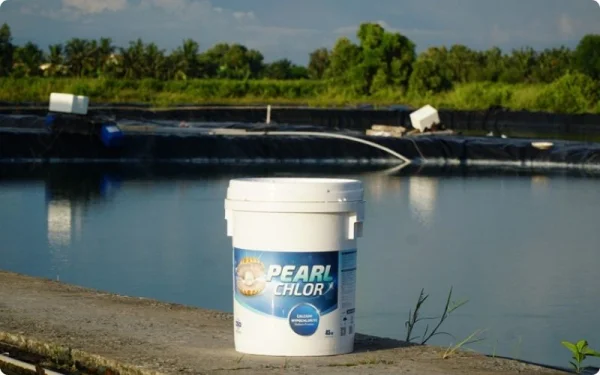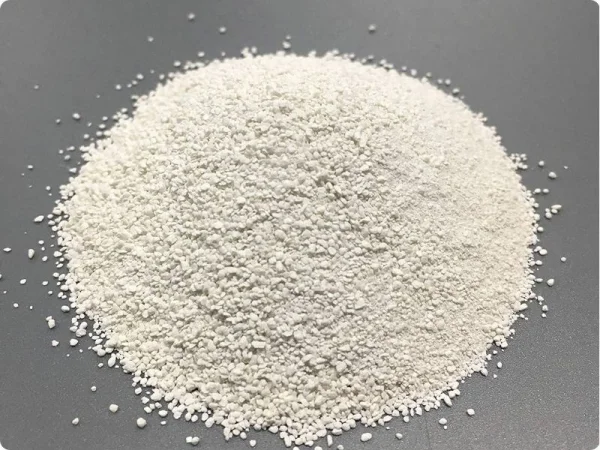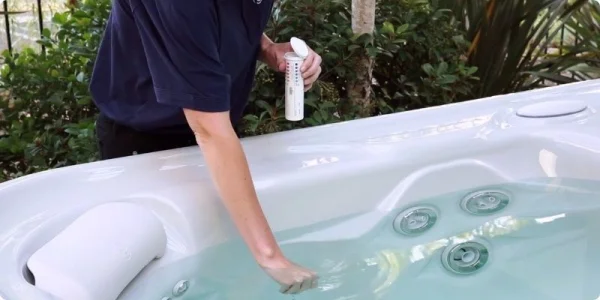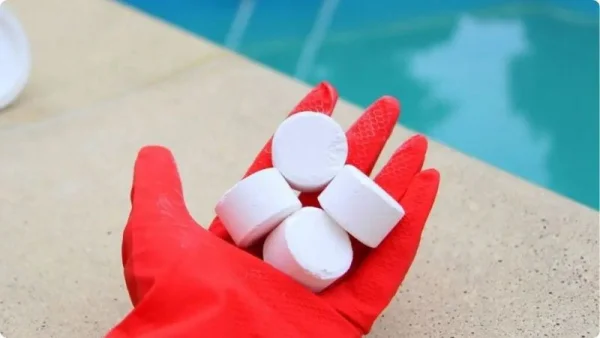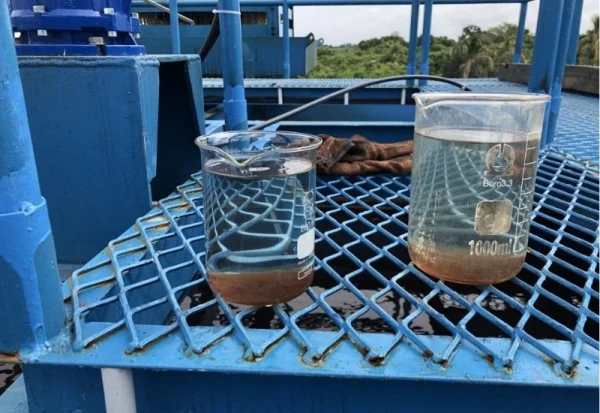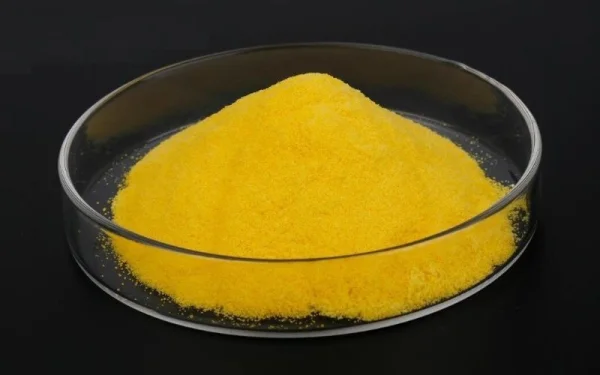
Chlorine is the backbone of pool sanitation, responsible for killing harmful bacteria, viruses, and microorganisms that can pose health risks to swimmers. With various types of chlorine available on the market, choosing the right one for your pool can be a daunting task. In this comprehensive guide, we'll explore the different types of chlorine, their advantages and disadvantages, and help you determine the best chlorine for your pool.
Understanding Stabilized vs. Unstabilized Chlorine
Before delving into the specific types of chlorine, it's essential to understand the difference between stabilized and unstabilized chlorine. Stabilized chlorine contains cyanuric acid, a chemical compound that acts as a sunscreen, shielding the chlorine molecules from the sun's UV rays and prolonging their effectiveness. On the other hand, unstabilized chlorine lacks this protective barrier and is more susceptible to degradation by sunlight.
Difference between stabilized and unstabilized chlorine lies in the presence or absence of cyanuric acid, a chemical compound that acts as a sunscreen for chlorine molecules. This difference has a significant impact on the effectiveness and longevity of the chlorine in your pool.
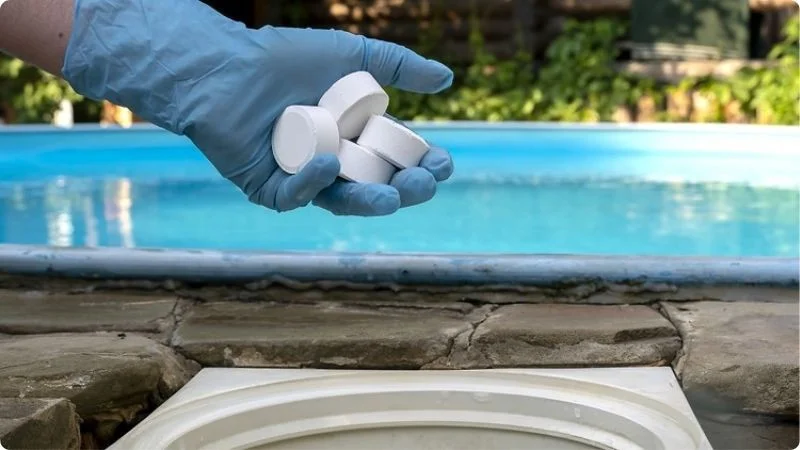
The distinction between stabilized and unstabilized chlorine
Types of Stabilized Chlorine
Trichlor Tablets and Sticks Trichloro-s-Triazinetrione
Commonly known as Trichlor, is a highly concentrated and stabilized form of chlorine that comes in tablet or stick form. These products are designed to dissolve slowly, providing a steady and continuous supply of chlorine to the pool. Trichlor is an excellent choice for regular pool maintenance, as it is effective at withstanding the effects of sunlight and other environmental factors.
One advantage of Trichlor tablets and sticks is their ease of use. They can be placed directly into a chlorine feeder, allowing for a consistent release of chlorine into the pool water. Additionally, Trichlor is known for its effectiveness in preventing algae growth.
However, it's important to note that Trichlor can be more expensive than other chlorine options and may cause staining or pH imbalances if not used properly.
Dichlor Granular Shock Dichloro-s-Triazinetrione
Dichlor Granular Shock Dichloro-s-Triazinetrione, or Dichlor, is another stabilized chlorine option that comes in granular form. Dichlor is often used as a shock treatment to quickly raise chlorine levels and eliminate contaminants. Unlike Trichlor, Dichlor has a neutral pH level and typically has a lower chlorine content but a higher stabilizer presence.
While Dichlor can be more expensive than other chlorine options, it has a long shelf life and minimal impact on the pool's pH levels when administered correctly. It's an excellent choice for those seeking a high-quality sanitizer with minimal pH effects.
Types of Unstabilized Chlorine
Liquid Chlorine
Liquid chlorine, also known as sodium hypochlorite or bleach, is one of the most common and widely available types of unstabilized chlorine. It is fast-acting and effective at raising chlorine levels and balancing the pool's pH. Liquid chlorine is typically sold in plastic jugs and is applied by pouring it directly into the pool or in front of the pool's jets for even distribution.
One of the advantages of liquid chlorine is its ease of use and low cost. However, it has a shorter shelf life than stabilized chlorine and can cause significant pH fluctuations if not used correctly. Additionally, liquid chlorine is vulnerable to degradation by sunlight, requiring more frequent application.
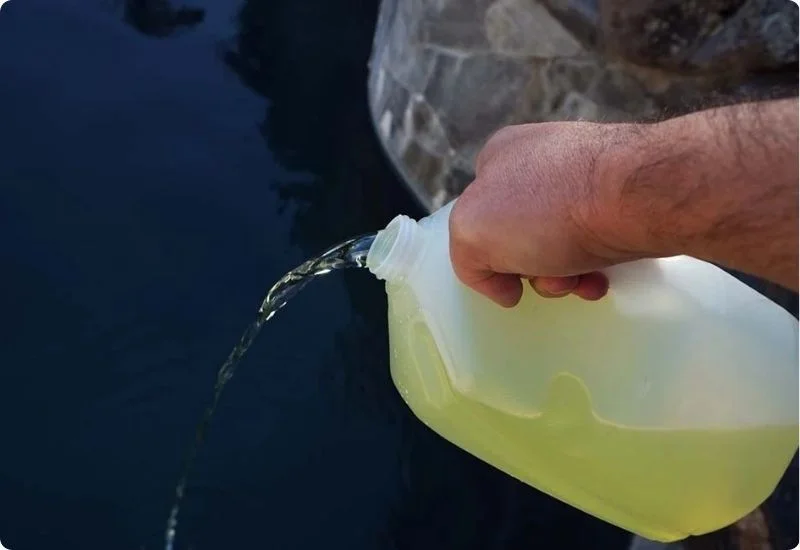
Liquid chlorine is ease to use and low cost
Calcium Hypochlorite
Calcium Hypochlorite, commonly referred to as Cal-Hypo, is a granular form of unstabilized chlorine that is widely used for pool sanitation. It has a high available chlorine content (65-73%) and a long shelf life, making it a powerful and cost-effective option for shock treatments.
Cal-Hypo is particularly effective in fresh water pools and provides significant sanitizing capacity. However, it can contribute to calcium buildup in pools with high pH levels or hard water, potentially leading to scaling issues.
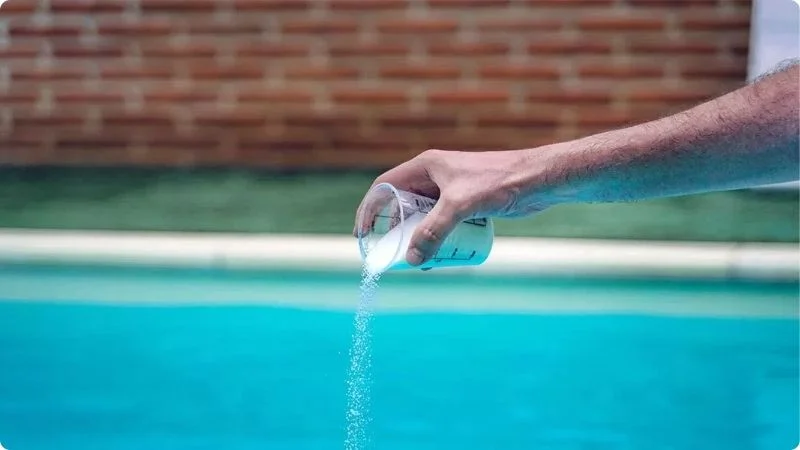
Granular chlorine lasts long
Selecting Optimal Chlorine for Pool
When selecting the best chlorine for your pool, consider the following factors:
- Pool Type (Indoor vs. Outdoor) For indoor pools, unstabilized chlorine options like liquid chlorine or Cal-Hypo may be suitable, as there is no need to protect against UV rays from sunlight. However, for outdoor pools, stabilized chlorine products like Trichlor or Dichlor are recommended to ensure longer-lasting effectiveness.
- Maintenance Preferences If you prefer a low-maintenance approach, stabilized chlorine tablets or sticks may be the ideal choice, as they can be placed in a chlorine feeder and gradually release chlorine into the pool. On the other hand, if you don't mind more frequent applications, liquid chlorine or granular shock treatments may be more suitable.
- Pool Size and Usage For larger pools or pools with heavy usage, products with a higher available chlorine content, such as Cal-Hypo or Trichlor, may be more cost-effective in the long run. Smaller pools or spas may benefit from the smaller tablet sizes or liquid chlorine for easier dosing.
- pH Considerations If you have concerns about pH imbalances, Dichlor or liquid chlorine may be better options, as they have a minimal impact on pH levels when used correctly. However, if pH fluctuations are not a significant issue, other chlorine types like Trichlor or Cal-Hypo can be effective choices.
- Cost and Availability While cost should not be the sole determining factor, it's essential to consider the cost and availability of different chlorine products in your area. Liquid chlorine and Cal-Hypo are generally more affordable options, while stabilized chlorine products like Trichlor and Dichlor may be more expensive but offer longer-lasting effectiveness.
Safety Considerations
Regardless of the chlorine type you choose, it's crucial to follow all safety precautions when handling and using pool chemicals. Never mix different chlorine types together, as this can cause violent reactions. Always store chlorine in a cool, dry location, away from children and other chemicals. Follow all label instructions carefully and wear appropriate protective gear when handling chlorine.
In conclusion, finding the best chlorine for pool involves considering factors like pool type, maintenance preferences, pool size and usage, pH considerations, cost, and availability. By understanding the advantages and disadvantages of each chlorine type, you can make an informed decision and ensure a clean, safe, and enjoyable swimming experience for you and your family.
Related Articles
Exploring the Different Types of Chlorine Used in Water Treatment
Water treatment and disinfection are essential for maintaining the safety and quality of our water ...
Everything You Need to Know About Chlorine Granules for Pool Sanitation
When it comes to maintaining a clean and hygienic swimming pool, chlorine granules , commonly known ...
Chlorine vs. Bromine: Which Sanitizer is Best for Your Pool?
Chlorine has long been the go-to sanitizer for pools and spas, but have you heard of its ...
How Many Chlorine Tablets for Your Pool? A Step-by-Step Guide to Proper Dosage and Maintenance
One of the most crucial components in keeping your pool water crystal clear and free from harmful ...
How to Prepare PAC for Water Treatment?
Water is essential for life, yet access to clean and safe water remains a significant challenge ...
Is It Safe to Touch PAC Chemicals with Bare Hands?
If you work in the water treatment industry, you've likely heard of PAC chemicals . As known, this ...

